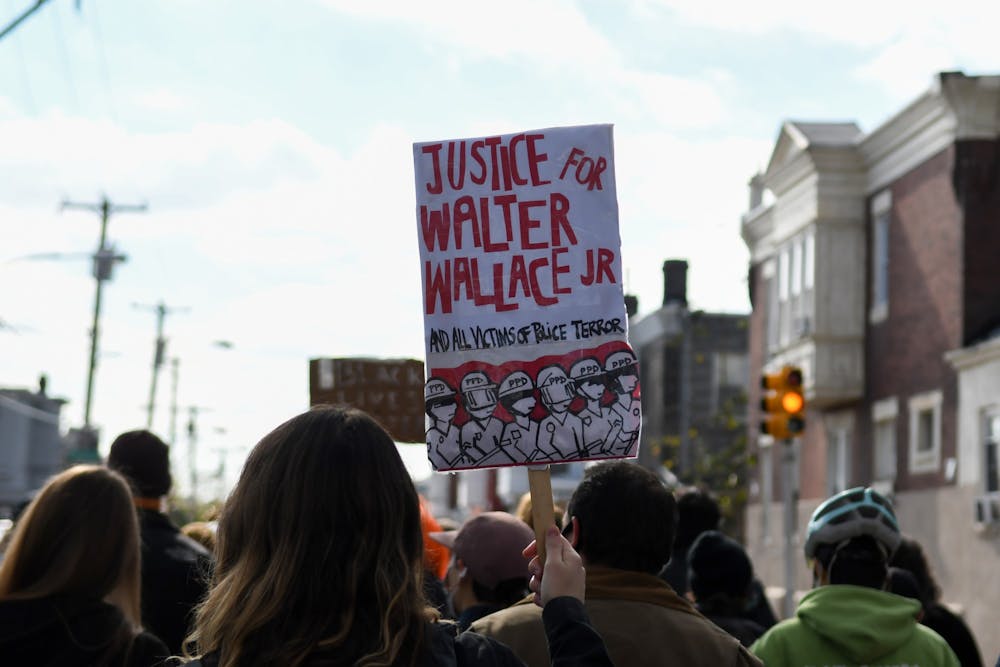
On the afternoon of Oct. 26, 2020 Philadelphia Police shot and killed Walter Wallace, Jr. not too far from our campus. Per Mr. Wallace’s family, he suffered from mental health problems. Video footage of the incident clearly displays a person in mental distress. Since watching the unnecessary force that led to Mr. Wallace’s death, I have continued to visualize Walter Wallace Jr.’s mother attempting to protect her son from being shot by the police. The images are haunting. As the mother of twin three-year-old boys, I cannot fathom what it would be like to have one of my Black sons gone or imagine celebrating their shared birthday with one of them in the ground. With Walter Wallace Jr.’s passing, his mother must consume that dreadful reality. I do not fear many things in life, but like a great portion of parents, the thought of losing one of my children is at the front line of my fears. Watching Walter Wallace Jr. be killed by police, in front of his mother, during a mental health crisis, will forever remain heartbreaking.
Black women with children live with a heightened level of this fear. Black women’s children, especially their sons, are distressingly and inequitably killed by police. These killings continually occur because of the persistent systemic and structural racial issues that exist in the United States. The ideology of policing justifies this brutality. We must acknowledge this deadly disparity for what it is, plain and simple. The parents of Black children deserve better. We must hear the alarmingly disproportionate cries of Black mothers. We must stop engaging with the disturbing ideas surrounding the strength of Black women as a waiver for their pain.
With our current policing system, entering a disadvantaged community and killing a mentally unstable person is justifiable. Philadelphia's Fraternal Order of Police union fails to admit that reforms are desperately required. The police union would much rather hold on to the clout it has captured in Philadelphia, while irreversibly harming the communities of Philadelphia, than to honor the indisputable need for change. A step forward and away from the violence we have become accustomed to starts with accepting the historical, racial, and structural truths solidifying the barbaric reality of our current policing system.
Following Mr. Wallace’s killing, Philadelphia erupted in protests. Some of them were peaceful, others were not. The protests are a reflection of the deep pain citizens feel. This pain has been festering since the dawn of policing. This pain is not rational; it is a response to an inhumane and oppressive system that has stolen loved ones and ruined families. This pain is engulfed by the immoral reality that a parent can lose their child at the hands of a flawed cut-and-dried policing system on any given day. This system allows a human who is suffering from the weight of a mental crisis to be passively killed with little to no discourse. Our policing system should not support this type of atrocious killing.
We must stop subscribing to this system. We must acknowledge the many elements of mental health instability and implement safe ways to engage with anyone suffering from a mental health problem. We must collectively agree that Black lives inherently matter and protect them. We must understand that the lives of Black people, people of color and poor people are not less valuable. We must hold America’s tainted socioeconomic system and its issues with racial hierarchy accountable. We must hold a space for Black mothers and families that does not end with conforming their unimaginable pain into a normality. We must commit to a non-deadly way for police officers to impact communities. The rest of the world has mastered this. What’s stopping us?

JESSICA GOODING is a College senior from Philadelphia, Pennsylvania studying History and English. Her email address is jgooding@sas.upenn.edu.
The Daily Pennsylvanian is an independent, student-run newspaper. Please consider making a donation to support the coverage that shapes the University. Your generosity ensures a future of strong journalism at Penn.
Donate



